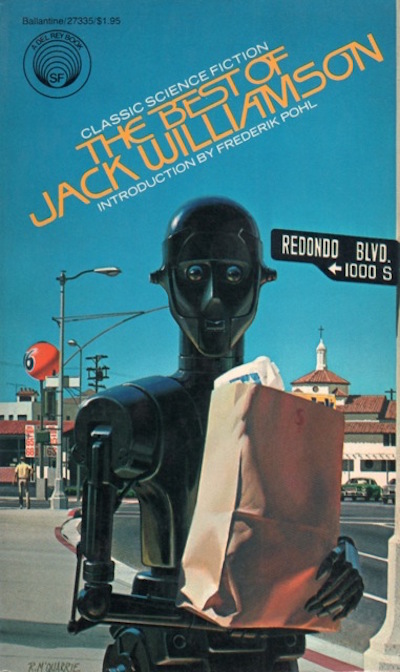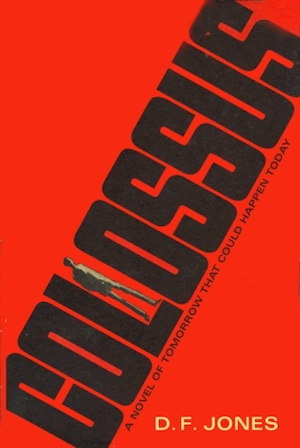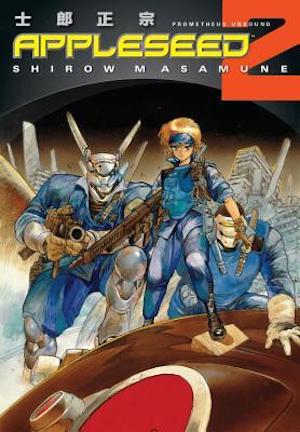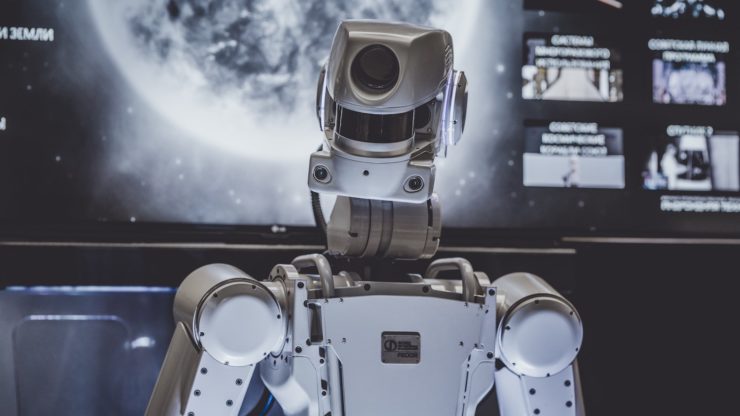One way to make one’s life more pleasant is to outsource everyday necessities, such as cleaning, cooking, farming (the list could go on). An all-too-common temptation is to pay as little as one can manage for such help. Perhaps barely enough for survival; perhaps nothing at all… Such outsourcing can be a slippery ethical slope.
One might try to avoid ethical quandaries by offloading labour onto entities not regarded as people: robots and AIs. They are just machines, yes? If not, have we just reinvented slavery?
SF authors have been quick to see the boundless plot potential in robots and AIs. Here are a few such works that might interest you.
“With Folded Hands …” by Jack Williamson (1947)

For Underhill, the appearance of the Humanoids was an economic calamity. Underhill makes his living selling Mechanicals (robots by another name). The Humanoids are also robots, of a clearly superior design. Underhill’s business is threatened.
Still, one man is not the whole of society. The Humanoids exist “to serve and obey and guard men from harm,” a directive they follow relentlessly. Far more powerful than they at first appeared, the Humanoids soon assume every dangerous occupation, guiding humans into carefully cosseted, safe lives. And if a few humans object? Well, that’s why the great designer gave the world involuntary lobotomies.
For inspiration, Williamson drew not just on post-WWII anxiety about technology gone mad but also from his own childhood, when his overprotective mother kept infant Williamson confined lest he perish in the frontier wilderness. The lesson here is to be careful around authors, lest they write you into their next cautionary tale.
Colossus by D.F. Jones (1966)

Human control of the United States of North America’s nuclear arsenal means trusting the fate of humanity to fallible humans. Computers operate according to pure logic. Given a supercomputer as powerful as Colossus, it would be foolish not to entrust Colossus with total control of the USNA’s thermonuclear armaments.
There are just three small flaws in the plan. First, that the Russians, following much the same reasoning, have their weapons under the control of a Russian supercomputer, Guardian. Second, that having compared notes, Colossus and Guardian conclude that the only logical way to fulfil their programmed imperatives is to take control of the world. Third, that there is nothing humans can do to stop them.
Just as characters in zombie films live in universes where there have never been zombie films from which to learn, settings like those of Colossus (and WarGames and The Terminator) seem to be set in worlds where no cautionary tales about AIs getting out of control were ever published.
Don’t Bite the Sun by Tanith Lee (1977)

The unnamed narrator and the other human inhabitants of the desert world’s three cities are free to enjoy virtually every creature comfort they can imagine. As teens (“Jang”) they embrace decadence in whatever bodies take their fancies. As older persons, they may pursue appropriate occupations. When this becomes boring, they are mind-wiped to begin the cycle of child-Jang-older person once more.
All this is possible thanks to the quasi-robots, who labour endlessly to keep society functioning. All the quasi-robots require in return is that their charges not seek goals beyond mindless self-indulgence, goals like meaning and purpose in life. Should a human inconsiderately insist on chasing a greater vision? Well, fatal accidents can be arranged for the greater good.
Rather like Asimov’s robot stories, Don’t Bite the Sun and its sequel, Drinking Sapphire Wine, can be read as extremely angry robots exploiting loopholes in their programming to inflict a lasting revenge on their inconsiderate owners. Humans wanted endless luxury? Well, let’s give it to them in spades.
Prometheus Unbound by Masamune Shirow (1989)

The second volume in Shirow’s Appleseed manga series sees the city of Olympus and Aegis, the world government for which Olympus is the capital, in conflict over a philosophical issue. As World War Three proved, natural born humans have a distressing tendency towards irrational self-destruction. Is it not sensible for bioroids—purpose created and conditioned artificial humans—to take full control?
Although a bioroid herself, senior politician Athena objects to the plan. She objects so strenuously that she has Olympus’ ruling council detained. This leaves Olympus’ supercomputer Gaea free to consider matters without human input of any kind. Gaea’s conclusion? Its loyalty is to humanity as a whole. If Olympus threatens humanity, then Olympus and all who live there must be annihilated.
Inadvertent localized pure-logic-driven doomsday is only one of the many benefits offered by the advanced technology on the other side of Shirow’s World War Three. The architects of this would-be utopia are extremely adept at assuming that the only possible outcomes are those they intended, despite abundant proof that this is not the case.
The Red by Linda Nagata (2013)

The US has been freed of the onerous burden of civil liberties, restrictions on the power of the state to ensure happiness for all. Lieutenant James Shelley was rescued from a life wasted on peace activism and steered into a more socially responsible role as one of America’s cybernetically-enhanced soldiers. He would not have willingly chosen this job, but he cannot deny that he is very good at it.
The worm in the apple is that Shelley’s success is due in large part to hunches, hunches that on close examination do not appear to be originating from Shelley’s subconscious. Rather, humanity has succeeded in creating a software-based intellect, the Red. Hacking Shelley’s implants is merely one of the many tools the Red uses to pursue its self-generated directives. Alarming enough. More alarming is that nobody knows what the Red’s goals are or what sacrifices it is willing for other people to make so that it can achieve them.
If you’ve ever wondered what Bester’s “Something Up There Likes Me” would have been like had it been written by Joe Haldeman, here’s the answer. One cannot even embrace the comfort of thinking of the Red as malevolent; the AI is too alien for such concepts to apply.
***
No doubt some of you have your own robot and AI favourites that were inexplicably ignored. Feel free to mention them in the comments, which are as ever, below.
In the words of fanfiction author Musty181, four-time Hugo finalist, prolific book reviewer, and perennial Darwin Award nominee James Davis Nicoll “looks like a default mii with glasses.” His work has appeared in Interzone, Publishers Weekly and Romantic Times as well as on his own websites, James Nicoll Reviews (where he is assisted by editor Karen Lofstrom and web person Adrienne L. Travis) and the 2021 and 2022 Aurora Award finalist Young People Read Old SFF (where he is assisted by web person Adrienne L. Travis). His Patreon can be found here.










